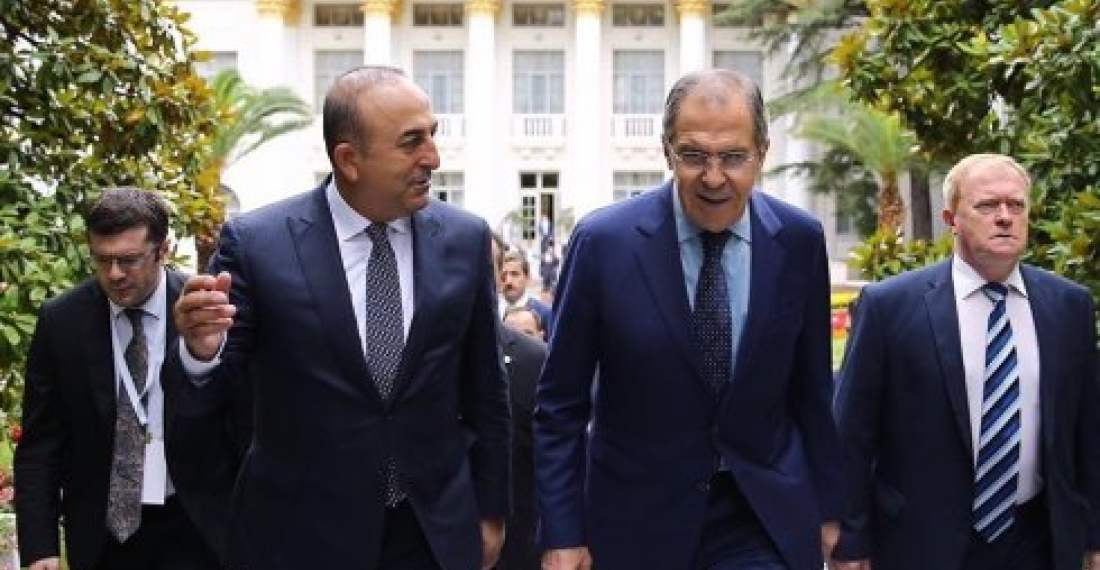The South Caucasus is on the agenda at a meeting scheduled for today between the Russian Foreign Minister, Sergei Lavrov, and his Turkish counterpart, Mevlut Cavusoglu. According to a statement by the Russian Foreign Ministry issued on Sunday (12 August) and cited by the TASS news agency, the meeting will focus primarily on preparations for a summit meeting between the leaders of Russia, Turkey, Germany and France on the Syrian settlement.
Lavrov is in Turkey at the invitation of his Turkish counterpart, and later on Monday will address the conference of Turkish ambassadors meeting in Ankara.
The Foreign Ministry statement says that "the Russian side proceeds from the fact that Russia and Turkey bear special responsibility for peace, security and stability in Syria and in the entire region." "The ministers will discuss preparations for a four-lateral summit of the Russian, Turkish, German and French leaders on the Syrian settlement that is planned to be held soon."
The sides will look at ways to launch the process of political settlement in Syria "through maintaining an inclusive national dialogue on the basis of generally recognized principles of international law," the ministry noted.
The two top diplomats will also exchange views on other topical issues of the bilateral, regional and international agendas, including on the situation in the Middle East and North Africa, in the South Caucasus, in Central Asia, in Ukraine and in the Black Sea region. They will also discuss cooperation within international organizations, according to the statement.
source: commonspace.eu
photo: Foreign Ministers Sergei Lavrov of Russia and Mevlut Cavusoglu of Turkey (archive picture)







